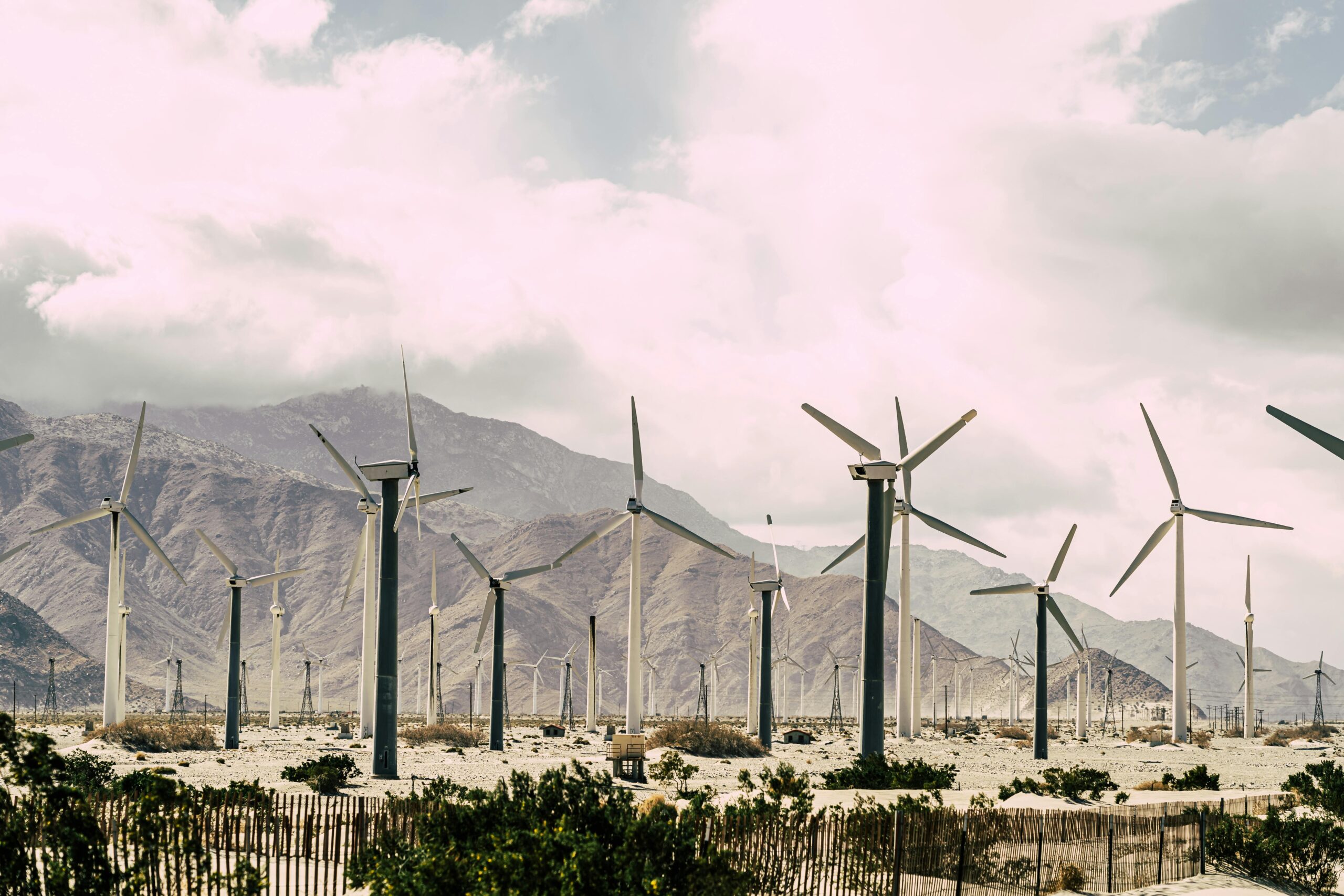COP 30: The Test for the Global Pledge to Move Beyond Fossil Fuels
Two years after world leaders promised to transition away from fossil fuels, that commitment now faces its biggest test. As governments met at COP 30 in Belém, Brazil, they needed to prove that their words from Dubai were more than rhetoric and show how they planned to align finance, raise ambition, and make the energy transition fair for all.
From Promise to Proof
At COP 28 in Dubai, countries took a historic step by agreeing to “transition away from fossil fuels in energy systems, in a just, orderly, and equitable manner.” It was the first time such language had appeared in a UN climate agreement.
But two years later, progress is stalling. Many governments continue to expand fossil fuel production, even as the science demands the opposite. Current national plans would see fossil fuel extraction rise by more than 120% by 2030, far exceeding what’s compatible with limiting warming to 1.5°C.
The 2025 advisory opinion of the International Court of Justice made it clear: expanding or subsidising fossil fuels could breach international law. Yet global subsidies persist, and COP 29 brought little movement on implementation. As clean energy gains momentum and fossil fuel demand declines, countries that fail to diversify their economies face growing legal and market risks.
COP 30 provides an opportunity to change course by ending public support for fossil fuels, strengthening national climate pledges, and ensuring a fair, inclusive transition.
Cutting Fossil Fuel Subsidies
Governments have pledged at several COPs to phase out “inefficient” fossil fuel subsidies that don’t address energy poverty or help workers through the transition. But real progress has been slow.
At COP 30, negotiations under Article 2.1(c) of the Paris Agreement, on aligning financial flows with climate goals, could finally move the needle. Countries could be asked to publish inventories of their subsidies and develop time-bound plans to phase them out, while protecting vulnerable communities and ensuring affordable energy access.
Wealthier nations are expected to lead the way, ending both domestic and international public finance for fossil fuels.
The upcoming Baku to Belém Roadmap, calls for mobilising USD 1.3 trillion in annual climate finance by 2035. Phasing out fossil fuel subsidies could help unlock that money. Annexe II countries, those responsible for providing climate finance to developing nations, spent USD 378 billion on fossil fuel subsidies in 2023 alone. Redirecting even part of that sum could transform climate finance.
Raising Climate Ambition
The next test for governments lies in their Nationally Determined Contributions (NDCs); the national plans that underpin the Paris Agreement. The next round of NDCs is meant to strengthen global ambition. Including commitments to transition away from fossil fuels would be a key sign of progress.
But the October 2025 UN synthesis report suggested a worrying gap. Current pledges would cut emissions by only 17% by 2035 compared to 2019 levels, far below the 60% cut needed for a 1.5°C pathway. Only 22% of submitted NDCs include clear targets or policies for advancing the clean energy transition.
Unless COP 30 delivers a robust response, the credibility of the Paris Agreement could suffer. Around 70% of global emissions come from countries that have yet to submit updated NDCs. Those new plans must include measurable goals, reducing fossil fuel production, ending new exploration licences, and phasing out fossil fuel subsidies.
So far, only 15 fossil fuel–producing countries have included measures to manage production in their NDCs, and just four have committed to transitioning away from fossil fuels altogether. COP 30 is the moment to raise that bar.
Making the Transition Just
The clean energy transition will only succeed if it’s fair. Without addressing its social and economic impacts, the shift away from fossil fuels risks deepening inequality and leaving vulnerable communities behind.
The Just Transition Work Programme (JTWP), established at COP 27 and launched at COP 28 was designed to make climate action people-centred. It promotes decent work, social dialogue, and opportunities for all. But progress has stalled. COP 29 ended without agreement on next steps, leaving the agenda at a crossroads.
Negotiations in Bonn in June 2025 offered new hope, with countries agreeing on a broader vision rooted in human rights, gender equality, nature, and universal access to clean energy and cooking. COP 30 must now turn that vision into action, giving the JTWP a clear mandate to help countries design and fund just transition strategies that are built into their climate plans.
Inclusion at the Heart of COP 30
The COP 30 Action Agenda puts inclusion at the centre of the climate conversation, linking gender equality, decent work, and social justice to energy policy. Around the world, evidence shows that when women and marginalised groups are part of energy planning, communities benefit.
Research from the International Institute for Sustainable Development in India and Kenya found that when solar irrigation systems were designed with gender and inclusion in mind, they not only improved livelihoods but also created new income streams and leadership roles for women. Embedding such gender-responsive approaches in NDCs and national energy plans can ensure the benefits of the energy transition are shared equitably.
From Declarations to Delivery
Belém represents the stage where governments can prove they’re serious about moving beyond fossil fuels, or content to let past promises fade. By committing to phase out fossil fuel subsidies, strengthening national climate plans, and supporting a just, inclusive transition, leaders at COP 30 can show that the Paris Agreement still has the power to drive real transformation. This time, the world isn’t waiting for more declarations. It’s waiting for delivery.
For the latest Alternative Energy Jobs, Carbon Capture and Storage Jobs, Carbon Jobs, Carbon Management Jobs, Carbon Offset Jobs, Carbon Reduction Jobs, Clean Energy Jobs, Climate Change Jobs, Climate Crisis Jobs, Climate Emergency Jobs, Electricity Jobs, Energy Efficiency Jobs, Energy Jobs, Energy Management Jobs, Energy Saving Jobs, Energy Storage Jobs, Environment Jobs, Environmental Jobs, ESG Investment Jobs, Green Jobs, Hydrogen Jobs, Low Carbon Jobs, Microgeneration Jobs, Net Zero Jobs, Offshore Jobs, Offshore Wind Farm Jobs, Offshore Wind Jobs, Power Generation Jobs, Power Jobs, Power Storage Jobs, Renewable Energy Jobs, Renewable Jobs, Solar Energy Jobs, Solar Farm Jobs, Solar Jobs, Sustainability Jobs, Sustainable Energy Jobs, Sustainable Finance Jobs, Sustainable Jobs, Wind Jobs, Wind Turbine Jobs in the United Kingdom please visit – GreenJobs
For the latest Alternative Energy Jobs, Carbon Capture and Storage Jobs, Carbon Jobs, Carbon Management Jobs, Carbon Offset Jobs, Carbon Reduction Jobs, Clean Energy Jobs, Climate Change Jobs, Climate Crisis Jobs, Climate Emergency Jobs, Electricity Jobs, Energy Efficiency Jobs, Energy Jobs, Energy Management Jobs, Energy Saving Jobs, Energy Storage Jobs, Environment Jobs, Environmental Jobs, ESG Investment Jobs, Green Jobs, Hydrogen Jobs, Low Carbon Jobs, Microgeneration Jobs, Net Zero Jobs, Offshore Jobs, Offshore Wind Farm Jobs, Offshore Wind Jobs, Power Generation Jobs, Power Jobs, Power Storage Jobs, Renewable Energy Jobs, Renewable Jobs, Solar Energy Jobs, Solar Farm Jobs, Solar Jobs, Sustainability Jobs, Sustainable Energy Jobs, Sustainable Finance Jobs, Sustainable Jobs, Wind Jobs, Wind Turbine Jobs in Ireland please visit – GreenJobs (Ireland)
LOOKING TO HIRE TALENTED GREEN ENERGY PROFESSIONALS?
We Can Help You To Find The Right Candidate & Save You Money.
For more information please contact us at – info@greenjobs.co.uk – quoting the following promotional code – GREENFUTURE2111


